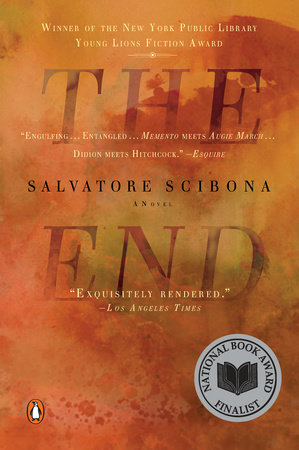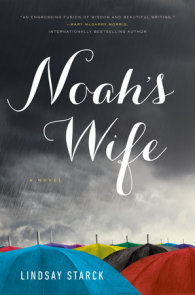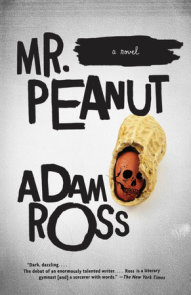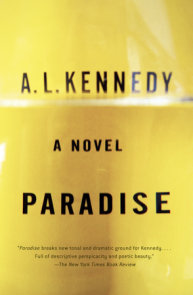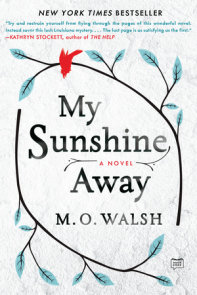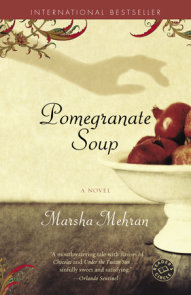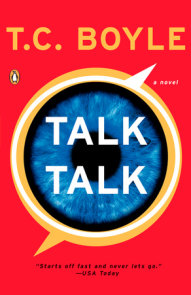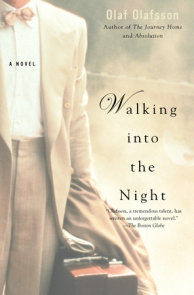READERS GUIDE
Questions and Topics for Discussion
INTRODUCTION
Winner of the 2009 New York Public Library Young Lions Fiction Award
It is a sweltering August day in Elephant Park, Ohio. The year is 1953, the Korean War has recently ended, and the neighborhood’s population of Italian immigrants is preparing up for its annual festival for the Feast of the Assumption. As the festivities reach a riotous pitch and forces from outside the neighborhood cause tensions to rise, five different people, linked by a secret, collide into each other and are plummeted into the past.
Rocco LaGrassa, the neighborhood baker, has just learned that his son has died in a North Korean POW camp. Abandoned seventeen years earlier by his wife and two other sons, Rocco, makes an unprecedented decision to close his bakery and search for his errant family. Before he sets out, however, he receives an unexpected invitation to dine with his neighbor, Mrs. Marini, which he cannot refuse. Constanza Marini now ninety-three-years-old, performs illegal abortions with a tenderness she exhibits in no other facet of her life. Childless and widowed, she cares only for Lina and Ciccio Mazzone, a mother and son she has watched over for years. An apprentice in Mrs. Marini’s illicit profession, Lina has just returned to Elephant Park after a seven-year absence and Ciccio, now sixteen-years-old, spends much of his time with Mrs. Marini as he struggles to forgive his mother for her desertion.
As the festival surges on and Rocco, Mrs. Marini, and Ciccio settle in at the table, and Lina takes her place at the shop down the street, Salvatore Scibona unspools half a century of their shared history in Elephant Park. And he introduces a shadowy figure, a neighborhood jeweler lost in the crowd outside, as the man whose crime binds them all inextricably together.
Inventive, explosive, and cast from the racial, spiritual, and moral tension that has given rise to modern America, Salvatore Scibona masterfully reveals, through the events of one day, the entangled fates of these five Americans. A National Book Award finalist, winner of the 2009 New York Public Library Young Lions Fiction Award, and recipient of the inaugural Cape Cod Norman Mailer Award, The End heralds the arrival of an electric new voice in American fiction.
ABOUT SALVATORE SCIBONASalvatore Scibona’s fiction has been published in Best New American Voices and The Pushcart Book of Short Stories: The Best Short Stories from a Quarter-Century of the Pushcart Prize. He administers the writing fellowship at the Fine Arts Work Center in Provincetown, Massachusetts.
DISCUSSION QUESTIONSAlthough the novel follows the lives of five unique characters, why do you think we meet Rocco LaGrassa first among them? Is he more sympathetic than the others? How does his situation—abandoned by his family and on a quest to find them—resonate with the greater themes of the book?When Rocco is at Niagara Falls, he is certain that he and the ice cream man share a moment of mutual recognition, although the latter denies it. Why is the moment so bright in Rocco’s memory? What do you think this scene illumines about the role of memory in the rest of the book?Mrs. Marini describes her breasts as “withered medlars … unique among fruits in that it is inedible until it starts to rot” (p. 69). It is a description that could be applied to Mrs. Marini herself. What do you think Mrs. Marini is trying to say about herself? Could anyone else in the novel be similarly described?Before he goes out and follows Lina, the jeweler recollects being chastised by his mother. “She said, ‘You’re bored because you don’t know the names of things’ ” (p. 123). What was she trying to tell him? Knowing what the jeweler has done, what do you think this means in the context of his crime?Why does Patrizia stay on at the grape farm after Umberto abandons it to return to Italy? What do you think Francesco means when he calls Ashtabula County’s soil “too good … to grow respectable wine grapes” (p. 173)? How might this sentiment also apply to the neighborhood of Elephant Park?“He felt shame and didn’t know what it was coming from, what purpose it was serving. He had to examine it. It was a warning of some kind. It was his heart warning his will of something” (p. 206). In what way is Ciccio’s shame intertwined with his sense that “he had become a grown man” (p. 206)? Do you think this sense of shame can be linked to something else in Ciccio’s life? In Lina’s?Assimilated and successful, Gary—a second-generation Italian-American, who opens Part Four of the novel—is the realization of every immigrant parent’s aspirations for their children. How does his experience of the festival epitomize the paradox of the American dream? How is his experience in America different from Rocco’s? Ciccio’s?Despite the circumstances of her departure, Lina comes back to Elephant Park. Why do you think she came back, even when the place haunts her? Was it only for Ciccio?Asked by one of the priests whether it’s better to feel or to think, Ciccio replies, “”That’s easy! … To feel” (p. 222). Later, Constanza laments, “I have never known, and do not know now, my own feelings; I can only feel them” (p. 292). Do you attribute their differing opinions to age, gender, or something else? What do these assertions reveal about each?The day of the carnival is saturated with an underlying sense of racial menace yet no act of violence is actually committed against the African-American characters. What is the role of race in the novel? How else is it manifested in the story?Women in The End mostly work in jobs that can be performed out of the home—Lina as a drapery seamstress and Mrs. Marini as an illegal abortionist—but they are often left exposed in public. How else are the female characters in control of their world? How are they at the mercy of their surroundings? How is it different now for working-class women than in 1953?Mrs. Marini closes the novel in a reverie to her dead husband and it’s here where we see a bit of the deeper emotional fabric that she suppresses in most of her daily life. What do you think she means when she says, “My darling darling, you have killed the past. You have broken my heart. You have given me the present moment?” (p 314) And what do you think this statement reveals about the way the past and present are linked in the novel itself?There is so much that the novel leaves tantalizingly unsaid. Why do you think Scibona leaves so much to be inferred by the reader? If it were possible, what unknown would you most like to have resolved?The End is a powerful work of fiction about an American immigrant community. What character do you identify with the most and why? What other novels did it remind you of? Why?









